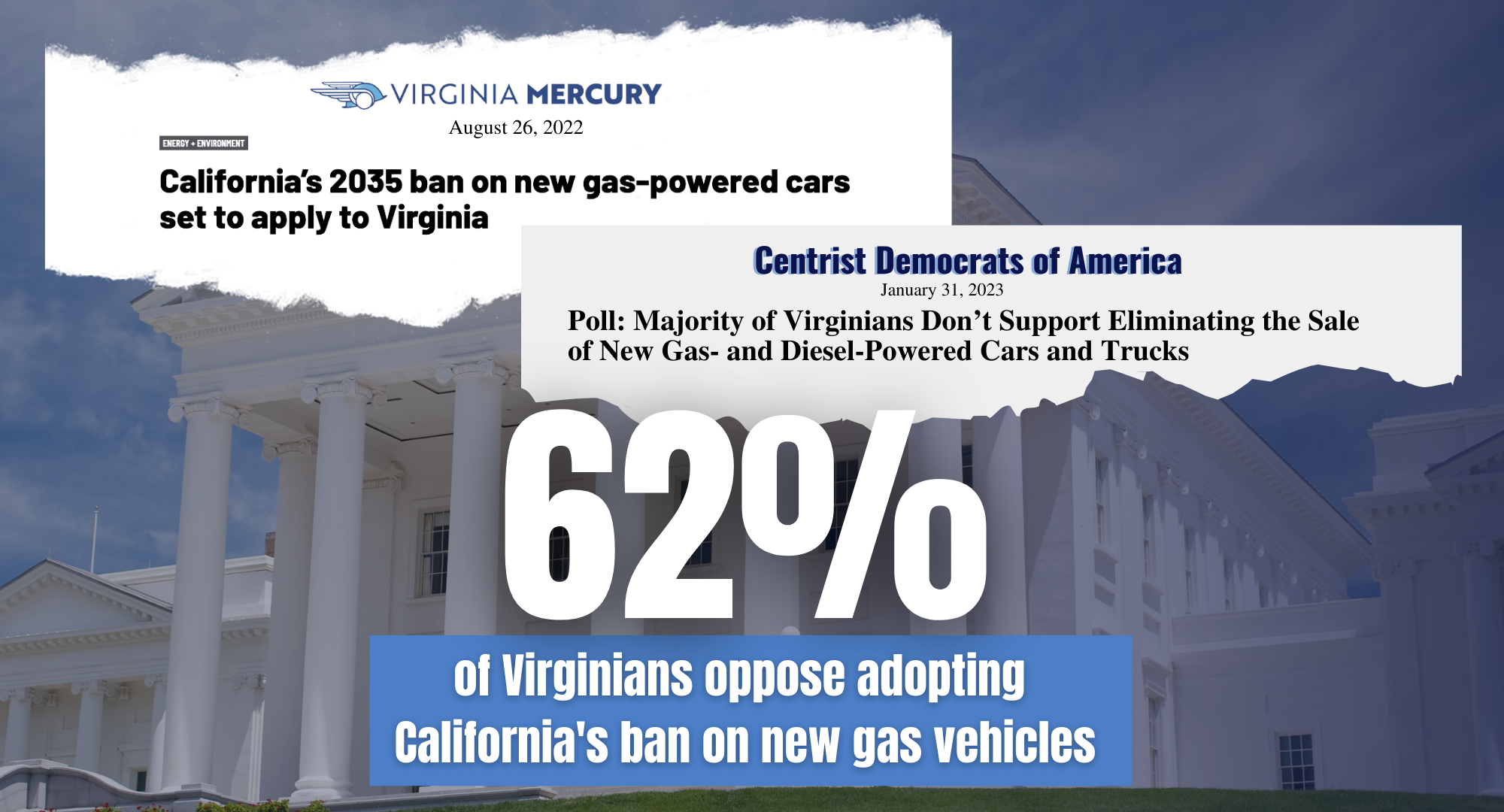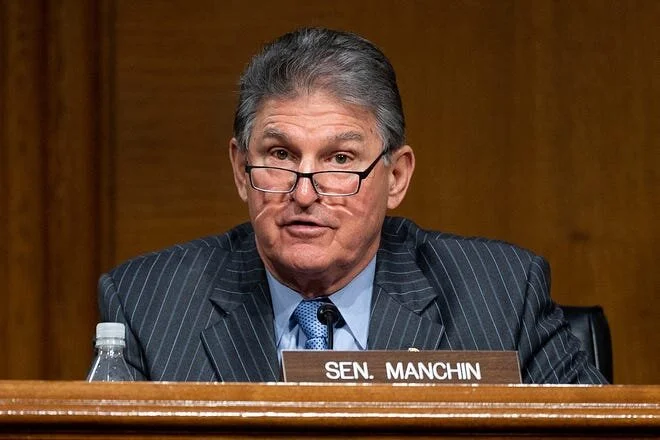Sensible Energy Project
Our Mission
We are driven by our mission to advocate for sensible regulatory and public policy decisions that are made in the best interest of all American people. We are committed to educating policymakers and the public about the consequences of the forced electrification of vehicles and the pitfalls of EV tax loopholes, which will lead to national security threats, higher costs, greater social inequities and more.
Most recently, as Virginia lawmakers consider legislation which may require Virginia to adopt California’s electric vehicle (EV) policy, a full ban on the sale of any new gasoline and diesel vehicles starting in 2035, the Centrist Democrats of America (CDA) released a poll on Virginians’ attitudes about EVs and the Commonwealth’s transportation future.
The key findings:
Only 9% of Virginians “strongly support” adopting California’s ban on the sale of new gas-powered vehicles.
56% of respondents “strongly agree” that Virginia should have its own regulations and not be forced to follow the rules of California.
Only 9% of respondents are “very likely” to purchase an EV.
48% of respondents are “unlikely” to purchase an EV in the next two to three years.
What’s Happening with Electric Vehicles (EVs)?
Electric Vehicles (EVs) are an important component of our transportation present and future. EVs help our national efforts to reduce greenhouse gas emissions and they offer significant benefits for a lot of drivers. These are indisputable facts.
However, EVs are being promoted by inequitable government policies—bans, mandates and tax breaks—that could require most everyone to purchase an EV in the near future. Unfortunately, this is being done without thoughts as to whether or not America will have the ability to power all of these vehicles with adequate charging, if EVs will be affordable or if consumers really want them. Lastly, there are serious national security concerns around China’s domination of the rare earth mineral markets – critical components in the batteries of all EVs.
The Current Issue
In October 2020, California Gov. Gavin Newsom announced an executive order that mandates, “all new cars and passenger trucks sold in California be zero-emission vehicles," by 2035. We have learned that California is often the policy trendsetter for the rest of the country, which means it is only a matter of time before this stance on EVs becomes the national standard.
The Virginia General Assembly is currently considering legislation which may require Virginia to adopt California’s electric vehicle policy, a full ban on the sale of any new gasoline and diesel vehicles starting in 2035. Centrist Democrats of America recently released a poll on Virginians’ attitudes about EVs and the Commonwealth’s transportation future.
“Democratic lawmakers in Richmond should reject the Republicans’ partisan efforts to dismantle programs to promote EVs, but CDA’s polling indicates that Democrats should not be pushing extreme policies like banning the sale of new gas-powered cars and trucks.” See the poll here.
Realities of EV Mandates
EV mandates come with many unintended consequences that will greatly affect the majority of Americans.
National Security
With a complete switch to EV batteries, the United States will need to rely on countries like China to acquire the minerals needed to build them.
Disproportionate Cost Burden
Fixed-income seniors, minorities, and people in rural, middle- and working-class communities will be hit hardest if the next car they buy has to be an expensive electric vehicle, and their taxes and energy bills will be even more expensive in the lead up.
EV Mandates Don’t Present the Whole Picture
Fuel-based engines are clean and getting cleaner; the vehicles and the liquid fuels they run on are a critical part of a cleaner transportation future.









